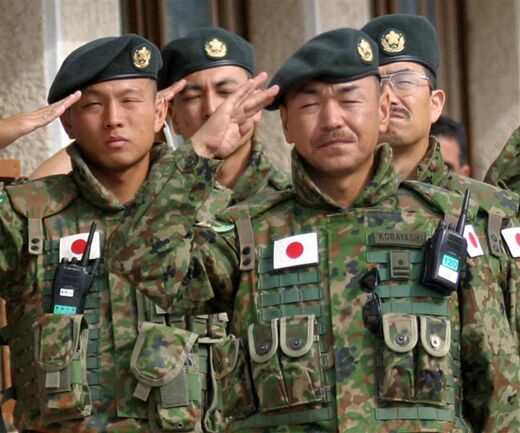
Japanese Military Evolution Continues
Japanese Prime Minister Junichiro Koizumi will leave office in September. As a last feat, he and his cabinet are proposing legislation that will retire Japan’s existing defense agency, and, for the first time since World War ii, create a fully fledged Japanese Defense Ministry. Through this legislation, Koizumi desires to not only augment and streamline the military sector within the Japanese government, but also secure the nation’s reputation as a stable and formidable military power.
After renouncing its right to wage war after being defeated in World War ii, Japan has been slowly restoring its image as a normal power. For more than 60 years, the Japanese military has been hemmed in by restrictive laws seeking to prevent history from repeating itself. In recent times, however, concerns such as North Korea’s nuclear program and global terrorism have primed Japan to dramatically change its military law.
Presently, the Japanese Defense Agency is largely subject to other more important and powerful government agencies, such as the Ministry of Foreign Affairs. Each time Japanese defense forces are considered for deployment, for example, the Japanese parliament must consider and approve special new legislation approving the deployment. Should Koizumi’s legislation be passed, the Japanese Defense Agency will evolve to become a more central, more independent and more influential department within the Japanese government.
The new legislation drafted by Koizumi’s government will streamline the process for military operations and make military deployment a more routine practice for Japan’s armed forces. “At the same time, the defense minister would be accorded the same level of authority as the minister of foreign affairs, including more autonomy in allocating the ministry’s budget and the power to propose legislation” (International Herald Tribune,June 15). Japan already has one of the largest and more advanced militaries in the world; this new legislation will make it easier for the Japanese government to exploit its military power.
With America’s military buckling under the weight of its many global responsibilities, the U.S. will likely facilitate Japan’s military evolution and encourage the nation to become a stronger counterweight to anti-American powers in the region. With Washington growing increasingly concerned by the military transformation underway in China, as well as North Korea’s persistence in developing nuclear weapons, it will increasingly rely on Japan to represent its interests in Asia.
This plan is logical in theory, but will prove unfeasible in practice.
Japan’s relationship with America is a relationship of temporary convenience. Astute analysts see that Tokyo’s future lies with the two emerging superpowers across the Sea of Japan. Russia and China have gained massive global influence in recent years, and both nations haven’t been shy in expressing their desire to curb American unilateralism. On top of the independent rise of each of these states, it is clear that relations between Russia and China nations are rapidly improving.
Individually, these nations wield a lot of influence internationally; together, Russia and China make up one of the most powerful tandems this world has ever seen.
In time, this is an alliance Tokyo will want to get in on.
In the short term, Japan stands to gain more from allying with the U.S. than with Russia or China. In the long term, however, as America’s global influence wanes, it will become evident to Japan that its future lies with the behemoths to its west. Tokyo’s relations with Beijing and Moscow are bound to improve.
Bible prophecy tells us that, eventually, these three nations will coalesce to lead a powerful conglomerate of Asian nations. To understand the relevance of the military evolution presently underway in Japan, as well as the nation’s role in future events, please read our booklet Russia and China in Prophecy.
